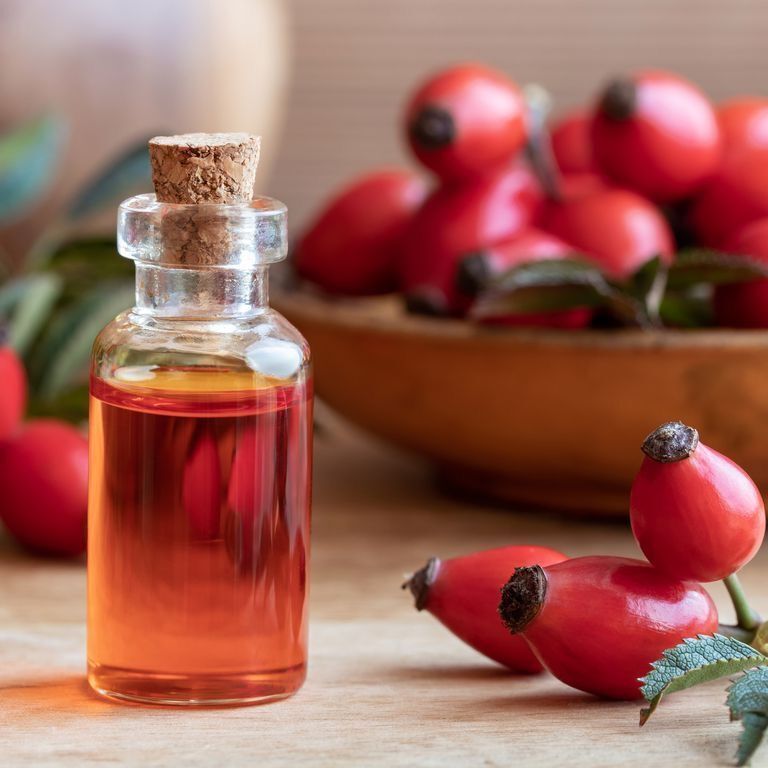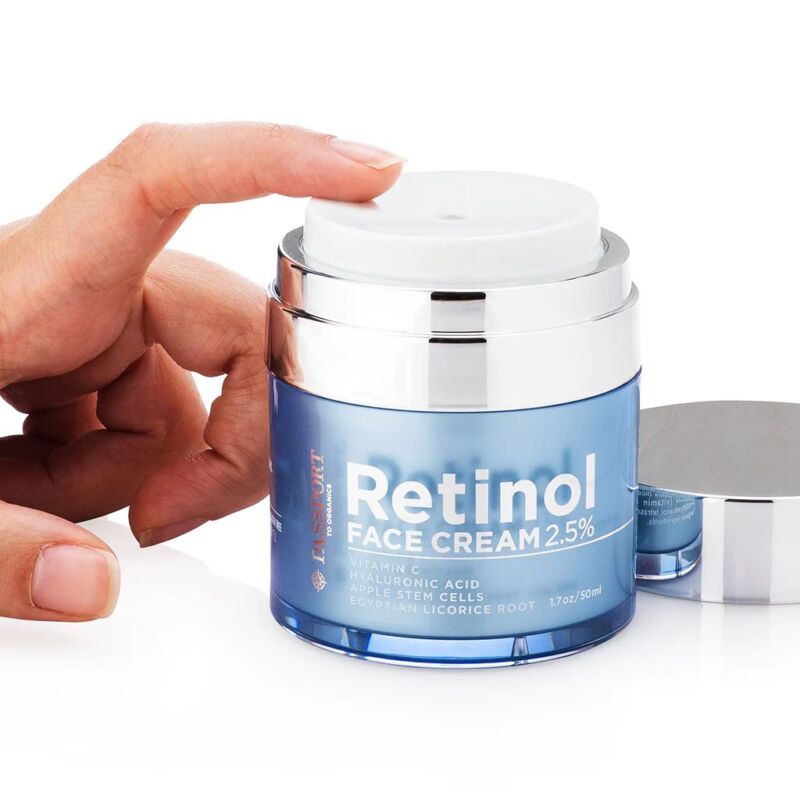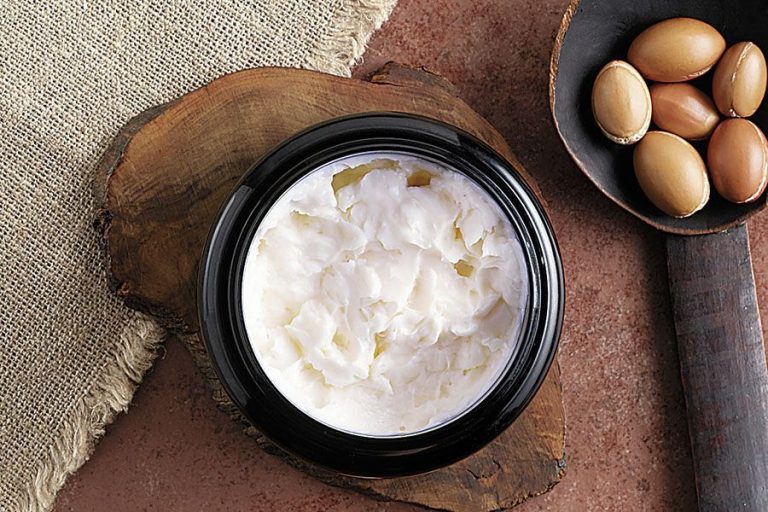Is it Safe to Use Rosehip Oil With Retinol Skincare?
Retinol and rosehip oil have become popular ingredients in many skincare routines. Both offer excellent benefits for the skin, but is it safe to use them together? I’ll provide a detailed overview on combining these products and how to do so effectively.
What is Retinol?
Contents
- What is Retinol?
- What is Rosehip Oil?
- Can You Use Rosehip Oil With Retinol?
- How to Use Rosehip Oil and Retinol Together
- Mixing Retinol and Rosehip Oil
- Can You Use Rosehip Oil With Tretinoin?
- Retinol Skincare Products To Try
- Top Rosehip Oils To Try
- FAQs
- Can I use The Ordinary’s granactive retinoid emulsion with their rosehip seed oil?
- Should I apply rosehip oil on top of retinol or mix them together?
- Can I use rosehip oil twice a day when using retinol?
- Is it safe to use rosehip oil daily with retinol cream?
- What results can I expect from using retinol with rosehip oil?
- Conclusion
Retinol is a vitamin A derivative and is considered the gold standard anti-aging ingredient. Once applied to skin, it is converted to retinoic acid which can:
- Stimulate collagen production and increase skin elasticity
- Reduce the appearance of fine lines, wrinkles, and uneven skin texture
- Treat acne and clear clogged pores
- Even out skin discoloration and tone
- Exfoliate to reveal brighter, fresher skin
Retinol works by increasing skin cell turnover. The increased cell regeneration helps smooth out rough patches and give skin a youthful glow.
However, retinol can also cause irritation, redness, peeling, and increased sun sensitivity in some people. This is often due to overuse. It’s best to start slowly with lower concentrations and gradually build up tolerance.
What is Rosehip Oil?

Rosehip oil is extracted from the seeds of rosehip fruit. It contains high concentrations of essential fatty acids, vitamin E, vitamin C, and vitamin A (retinol).
Rosehip oil provides numerous benefits for skin:
- Deeply moisturizes without clogging pores
- Reduces scars and smooths fine lines and wrinkles
- Helps fade hyperpigmentation and even out skin tone
- Boosts skin regeneration with vitamin A
- Provides antioxidant protection against free radicals
- Soothes inflammation and redness
The vitamins and fatty acids in rosehip oil nourish the skin to give it a natural glow. It’s considered safe for all skin types and is well tolerated because it’s a natural, gentle ingredient.
Can You Use Rosehip Oil With Retinol?
The short answer is yes, you can safely use rosehip oil with retinol. However, some care should be taken when combining these powerful ingredients.
Since both retinol and rosehip oil increase skin cell turnover, using them together could potentially cause irritation and inflammation.
It’s best to begin by using them on alternating evenings before combining in one skincare routine. When applying them together, make sure to use only a small amount of retinol to start.
Always apply retinol products before rosehip oil. Retinol needs to be able to penetrate the skin, while oils create a protective barrier on the surface.
Both ingredients make skin more sensitive to UV damage. Be diligent about applying broad spectrum sunscreen daily when using retinol and rosehip oil. Try to avoid prolonged sun exposure.
How to Use Rosehip Oil and Retinol Together
When used properly, rosehip oil can complement a retinol skincare routine nicely. Here are some tips for maximizing results from these ingredients:
The vitamin A in rosehip oil enhances retinol’s ability to stimulate collagen production and healthy cell turnover. This leads to smoother, glowing, more youthful looking skin over time.
Rosehip oil delivers essential fatty acids and vitamins to deeply moisturize the skin. This helps counteract the drying effects of retinol.
The anti-inflammatory properties of rosehip oil can help calm any redness or irritation caused by retinol usage. It provides soothing relief.
Begin by using retinol 2-3 times per week and rosehip oil on other nights. Once skin adjusts, try applying a thin layer of rosehip oil after retinol absorbs to moisturize.
Nighttime application is best, as daylight can degrade retinoids. Make sure to always follow with SPF in the morning.
Don’t use other exfoliating acids or harsh ingredients when starting with retinol and rosehip oil. Too many active ingredients can irritate skin.
Those with sensitive skin or conditions like rosacea should ask their dermatologist before using retinol and rosehip oil together. A professional can provide specialized recommendations.
Mixing Retinol and Rosehip Oil
While you can apply rosehip oil after retinol, some people like to mix them together. Here’s what to keep in mind:
- Do a patch test first. Mix a couple drops of each and apply to a small area for several days to check for irritation before wider use.
- Start with a low concentration of retinol, like 0.2% to 0.5%, then gradually increase if well tolerated.
- Use only 2-4 drops of rosehip oil when mixing; too much could trap the retinol on the skin’s surface.
- Mix freshly before each use. Don’t premix batches. The retinol may degrade when combined long-term.
- Monitor skin carefully for any redness, peeling, or tenderness, which signals it’s time to reduce frequency.
Again, consult a dermatologist if you have concerns about using retinol with rosehip oil. They can evaluate your skin type and needs to provide guidance.
Can You Use Rosehip Oil With Tretinoin?
Tretinoin is a prescription topical retinoid. It’s much stronger than over-the-counter retinol products. Like retinol, tretinoin:
- Increases collagen production
- Stimulates skin cell turnover
- Improves skin texture and evens tone
- Reduces acne and clears pores
- Minimizes fine lines, wrinkles, and photodamage
However, tretinoin also has greater risk of side effects like redness, dryness, peeling, and photosensitivity.
Rosehip oil can help offset these side effects. Its skin-replenishing fatty acids provide moisture, while its antioxidants fight free radical damage from sunlight.
Here are some tips for using rosehip oil with tretinoin:
- Apply tretinoin first and let it fully absorb. Follow with 4-6 drops of rosehip oil.
- Use rosehip oil only at night since tretinoin increases sun sensitivity.
- Start with applying rosehip oil just 2-3 nights a week after tretinoin.
- Gradually work up to daily or twice daily use of the oil as skin adjusts.
- Avoid using other actives, acids, or scrubs when starting out.
- Monitor for irritation and reduce rosehip oil use if necessary.
- Ask your prescribing dermatologist before using rosehip oil with tretinoin.
Use caution when mixing any ingredients with a prescription topical like tretinoin. Always follow your doctor’s instructions.
Retinol Skincare Products To Try

There are lots of over-the-counter retinol options on the market that pair well with rosehip oil:
Neutrogena Rapid Wrinkle Repair Retinol Oil
- 0.3% retinol concentration
- Hydrating formula with hyaluronic acid
- Fast-absorbing
The Ordinary Retinol 0.5% in Squalane
- Moderate 0.5% retinol
- Squalane oil base hydrates skin
- Affordable option
Olay Regenerist Retinol 24 Night Moisturizer
- 0.3% encapsulated retinol
- Hydrating cream with niacinamide
- Dermatologist tested for sensitive skin
Sunday Riley A+ High-Dose Retinoid Serum
- 0.5% retinol with peptides
- Soothing botanical oils
- Anti-aging formula
La Roche-Posay Redermic R Retinol Eye Cream
- 0.3% retinol cream for eyes
- Helps minimize crow’s feet
- Hydrating and gentle formula
Top Rosehip Oils To Try
Here are some quality rosehip oil options to use with retinol:
The Ordinary 100% Organic Cold-Pressed Rose Hip Seed Oil
- 100% pure, organic rosehip oil
- Affordable option
- Lightweight texture absorbs quickly
Pai Rosehip Bioregenerate Oil
- Organic rosehip oil
- Rich in antioxidants
- Soothing for sensitive skin
Kora Organics Noni Glow Face Oil
- Rosehip oil blend with noni fruit
- Brightening and hydrating
- Natural botanical ingredients
Herbivore Botanicals Phoenix Rosehip Anti-Aging Face Oil
- Rosehip oil with antioxidants
- Hydrates and nourishes skin
- Promotes collagen production
Trilogy Certified Organic Rosehip Oil
- Certified organic cold-pressed rosehip oil
- Non-greasy, fast-absorbing
- Improves scars, fine lines, tone
FAQs
Can I use The Ordinary’s granactive retinoid emulsion with their rosehip seed oil?
Yes, you can pair these two Ordinary products together. Apply the retinoid first, let it fully absorb, then follow with 4-6 drops of the rosehip oil. Start using them together just 2-3 nights per week, then gradually increase frequency based on tolerance.
Should I apply rosehip oil on top of retinol or mix them together?
It’s generally recommended to layer them instead of mixing. Apply any retinol product first, then the rosehip oil after it has absorbed. This allows the retinol to penetrate most effectively. However, mixing just before application is also fine for some. Do a patch test first.
Can I use rosehip oil twice a day when using retinol?
In the morning, it’s best to avoid rosehip oil and use only a broad spectrum sunscreen when using retinol. In the evening, you can use rosehip oil after applying retinol to hydrate skin. Limit to once daily at night.
Is it safe to use rosehip oil daily with retinol cream?
It’s generally safe for most, but start slowly. Use retinol 2-3 nights a week first, then work up to nightly use. Apply rosehip oil after on the evenings you use retinol. Monitor for any irritation and reduce application if needed.
What results can I expect from using retinol with rosehip oil?
Consistency is key, but over time you may see improvements in fine lines, skin texture, tone, brightness and collagen production. The oil helps counter side effects like irritation, dryness and photosensitivity. Be patient for best anti-aging results.
Conclusion
In conclusion, yes—you can safely and effectively use rosehip oil with retinol skincare products. The vitamins and fatty acids in rosehip oil nicely complement the collagen-boosting effects of retinols. Just be sure to start slowly, do patch tests, apply retinol first, use only at night, wear SPF in the daytime, and monitor skin carefully when combining these ingredients. Consult a dermatologist if you have concerns or experience sensitivity. Used properly, this anti-aging duo can help reveal brighter, smoother, more youthful looking skin.

Founded by Sophia Rodriguez, IGXO Cosmetics is a PETA-certified, cruelty-free, and vegan makeup brand.





